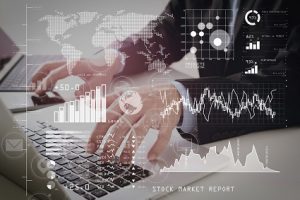Do Forex Traders Really Make Money
 Trading currency is one of the main market trading options, along with stocks, commodities, and real estate. Each of these is unique in some way, but what unites them all is that there’s a buyer, a seller, and a market where the exchange takes place. In this post, we will go over the main things to consider if you want to get into currency trading.
Trading currency is one of the main market trading options, along with stocks, commodities, and real estate. Each of these is unique in some way, but what unites them all is that there’s a buyer, a seller, and a market where the exchange takes place. In this post, we will go over the main things to consider if you want to get into currency trading.
The Basics of Making Money Through Forex Trading
Trading in foreign currencies on the foreign exchange market (Forex) is popular with many people who are looking for low capital trading. There is no need to have a massive investment to get started. It’s also convenient to trade Forex (FX) because a Forex trading day lasts for 24 hours (no trading during weekends, though).
That said, the lifecycle of a typical Forex beginner goes something like this.
- Get excited by a course that promises quick money and comfortable living.
- Sign up for a Forex broker without ever doing any further research.
- Blow through a large amount of money in a short amount of days.
- Conclude Forex is a scam, and no one makes money.
On the other hand, the top Forex traders are using tried and true systems that they slowly developed or learned through much trial and error. This allows them to make consistent profits on them every single day. However, even these top performers experience slippage at some point. It’s a common problem when currency markets are fast-moving. Slippage happens when losses are more substantial than expected. To account for this, successful Forex traders reduce calculated net profits by 10%.
The difference between successful traders and those that don’t succeed is what separates any successful and unsuccessful person. Those people that are ultimately successful have typically tried a million things and lost a lot of money and time in the process. The only way they were able to discover something profitable that worked for them was by trying things over and over again until they found something that works.
Sure, they don’t go out there preaching about all of their failed systems and all the times they lost money, but who would be?
How to Start With Forex?
If I were to start over trading in financial markets with no knowledge, there are a few key places I would start.
- First, I would begin by reading books. They teach the theory behind trading in financial markets, which is key to successful long-term trading.
- Second, I would join every Facebook group or Reddit thread that talked about Forex. Then I would ask questions in those groups. In addition to staying respectful, I’d try to help out by answering any questions that I could to those that knew even less than me.
- Next, I would understand that leverage can be a double-edged sword. Using excessive leverage can seriously damage what could otherwise be a successful Forex trading strategy. A big part of not using excessive leverage is being realistic about expectations of the return on investment. At this point, I’d also learn how to use a “stop-loss order”, which is essential to risk management.
- Finally, I would find people I trust and ask them for reputable brokers and courses that I could take. This one is probably the biggest key. There are probably hundreds of Forex courses online that guarantee you a system that will make you money from day one. As with anything of that nature, a lot of them are scams. They are taught by people that learned how to trade Forex, couldn’t succeed at it, and ended up just selling courses to make money.
Forex Trading: Demo Account vs. Real-Money Trading Account
Now, let’s get to the meat of the whole process-opening a Forex account.
After you’ve done your reading, watched relevant videos, asked questions, and got the answers to as many unknowns as you could, you can open a demo account and put your knowledge to the test.
If you are not familiar with the term, a demo account is a practice account where you trade with pretend money. The obvious main benefit of starting your forex trading journey with a practice account is that should you slip up, you won’t lose actual money.
But there are other advantages as well. With a demo account you can:
- Watch the Forex market move in real-time.
- Learn the industry jargon and how trading platforms work.
- Test out your knowledge and go crazy testing your theories.
- Try different currency pairs to find which ones will yield the best results for you.
- Compare various trading platforms and pick the one/s that you feel most comfortable to use.
There are more benefits to demo accounts; however, there’s something to keep in mind.
Only because a practice account uses pretend money doesn’t mean you should get sloppy with your practice currency trading. Think of it as a fire drill—there might not be a real emergency, but keeping it serious will help you in case things actually go south. In other words, once you’ve played around with your pretend money enough to know what works for you, treat your demo account as if you are trading with real money. This will give you a more realistic idea of what to expect once you dip your toes in the real-money Forex pool.
Granted, not all Forex trading platforms are the same. Go for reputable and secure ones, that also let you open demo accounts with real-time market data.
Technical Analysis vs. Fundamental Analysis
Just like you’d do when trading stocks, currency trading gets more precise when you know how to read charts. While it’s not the most exciting part of trading, going through numbers is key to a successful trade. Without it, all you do is gamble.
Again like with stock trading, traders go through technical and fundamental analysis upon which they base their trading strategy. Let’s quickly go over the difference between the two.
To do technical analysis, you would look at the past performance of the exchange rate of currency pairs. Technical analysis is what you typically see in movies about stock traders where they look at lines that go up and down. This is the market fluctuation, and the purpose of technical analysis is to predict where the market will go based on past performance.
Fundamental analysis is concerned with a country’s performance economy wise as shown by economic data such as GDP, employment, and inflation. Of course, other indicators come at play such as government stability, and the country’s international political and trade relations. All in all, the fundamental analysis approach attempts to predict a country’s currency value by assessing the country’s wellbeing.
So, which approach of the two should you pick? It might come as no surprise that it’d be best to learn both methods. What you can do is learn how to do both and, using a demo account, test them separately and together.
How to Make Money With Forex Fast?
Finally, let’s address the two questions that bug the most newcomers to the Forex world.
The two things that new FX Trader will ask is, “How much money will I make from the Forex market?” and “How to make money fast on Forex?”. The saying goes that the easiest way to get $1,000 in Forex is to start with $5,000. This is a tongue-in-cheek answer but points to an issue that is not a joke. Many traders do lose money on Forex.
Nevertheless, it is indeed possible to make money trading Forex. In fact, plenty of people manage to make a consistent income trading Forex daily, especially if they have an effective Forex day trading strategy in place.
The fallacy is that it is easy money. Typically, when someone signs up to start trading Forex, they do so under the false illusion that it is an easy way to make money. They are sold on expensive courses that feature wealthy millionaires in their yachts talking about how they do no work but make lots of money.
That very well may be so. But it is highly doubtful that those same wealthy millionaires weren’t working their butts off at some point in their life. It is also highly likely that those millionaires have lost a huge amount of money when starting trading Forex and learning how to succeed in what they do. That is the nature of the game.
Bottom line, yes, Forex traders really make money. People also lose money on Forex. It all comes down to your mindset. Those that make money understand Forex is a business and a hard one at that. They don’t have an “easy money” mentality.
The most important thing to remember can be summarized by Jack D. Schwager-a US trader and author of The Little Book of Market Wizards where he writes: “There is no single market secret to discover, no single correct way to trade the markets. Those seeking the one true answer to the markets haven’t even gotten as far as asking the right question, let alone getting the right answer.”
Note: This article originally appeared at Modest Money. The author is Jeremy Biberdorf. Jeremy is the founder of Modest Money. After working many years in the website marketing industry, he decided to take on blogging full time and also get his finances headed in the right direction.
Category: uncategorized




